How Much to Feed a Lab Hound Mix
Cross one of the many varieties of hound breeds with a Labrador and you'll end up with the energetic Lab Hound mix.
Depending on which hound dog is used as a parent for your pup, your cross will be known as a Bassador, Dachsador, or Labbe.
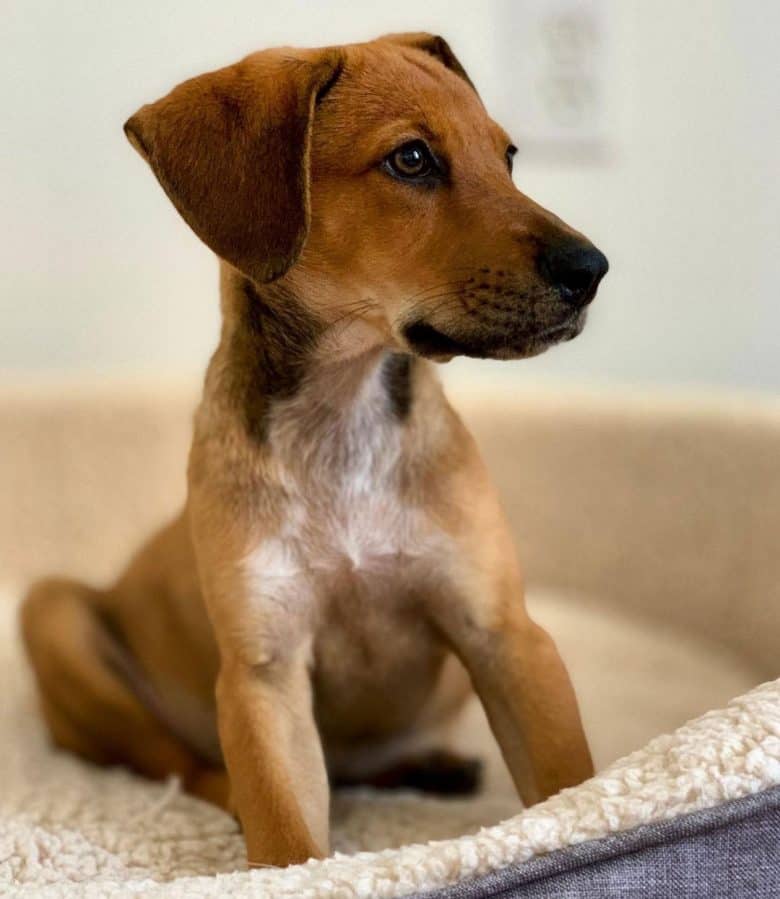
Keep reading to learn more about the different Lab Hound mixes out there and some of the characteristics you can expect with this cross.
What is a Lab Hound mix?
This unique crossbreed will offer up some of the best traits of its Labrador Retriever and Hound parents. In order to better understand the Lab Hound mix let's take a closer look at the parent breeds:
Labrador Retriever
The most popular breed of dog in the United States, Labrador Retrievers are known for their beauty and intelligence.
These eager to please dogs have a good amount of energy and so make for great companions for families.
Labrador Retrievers were originally used by fishermen in Newfoundland, Canada, to help them pull in their nets.
Today Labs are commonly used as service dogs, as assistants to law enforcement officers, or in search and rescue work. This is because Labs are easy to please and thus can be trained easily.
Labradors are also popular for their short, thick all-weather fur which means they can adapt well to a range of environments. These dense coats come in three colors, being black, yellow, or chocolate.
Your Labrador Retriever will live for around 12 to 13 years and during this time health problems to be aware of include obesity, hip and elbow dysplasia, luxating patellas, and eye issues such as cataracts.

Hound dogs
The Hound group includes a number of different breeds of dogs. These breeds are normally grouped into three distinct categories based on their historical use and hunting abilities.
Dogs in the scent category are known for their superior sense of smell and these breeds are typically used in hunting to find games or are often used to track down missing persons.
Hound dogs in the sight sound category are known to stalk prey using intense focus and their laser-like sight.
Finally, dogs that use both sight and sound to track are considered their own category.
What does a Lab Hound mix look like?
A Lab Hound mix's appearance will be greatly influenced by the type of Hound they are crossed with.
Typically this cross will have an athletic build with a deep, broad chest and a broad back with rounded shoulders. Their face shape, ears, and nose will likely reflect those of the Hound parent.
Check out this video of an adorable eleven week old Lab Hound mix to get an idea of what a puppy of this breed might look like:
How big do Lab Hound mixes get?
Whether the Labrador Retriever is crossed with a small Hound breed or a large Hound breed will affect the fully grown size of the Lab Hound mix.
You can expect Lab Bloodhound mixes to stand around 22 to 28 inches (56 to 71 cm) tall and weigh between 70 to 110 (32 to 50 kg) pounds, whereas a Lab Basset Hound mix will be shorter at 12 to 20 inches (30 to 50 cm) tall and weigh less at 45 to 70 (20 to 32 kg) pounds.
Due to their medium to large size and high energy levels, the Lab Hound mix needs a home with a large yard where it has space to move around. This dog is not well suited to apartment-style living.
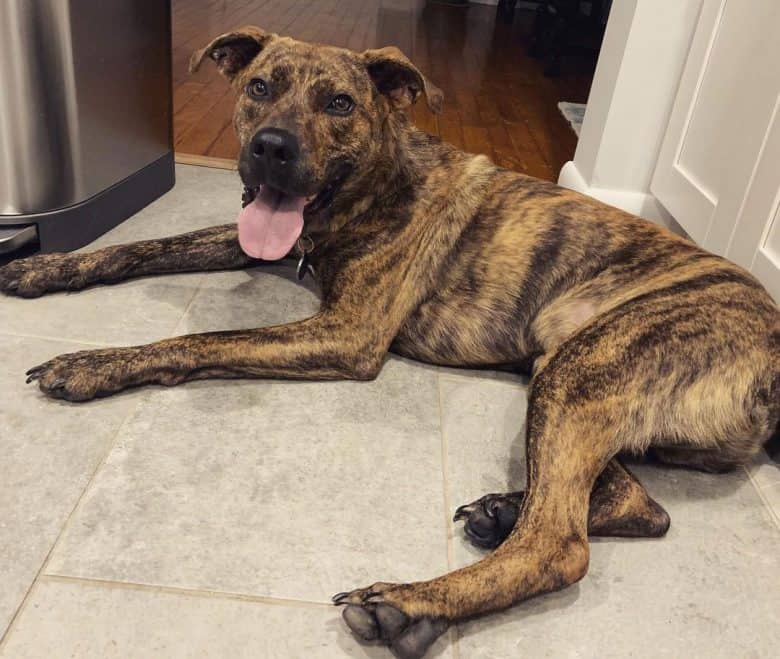
Coat and color of the Lab Hound Mix
While Lab Hound mix dogs can come in a variety of colors, black is the most common. Other varieties can include white, red, yellow, brown, black, tan, or brindle.
Their coats will typically be short, thick, and dense and as a result, these dogs are best suited to moderate climates where temperatures don't soar too high and they won't overheat.

Are Lab Hound mix good dogs?
While you may never be able to fully predict the personality of the hybrid Hound Lab mix these dogs normally exhibit a sweet, playful personality.
They are also extremely loyal and loving and will constantly crave attention, especially from one person.
These personality traits make the Lab Hound mix great family companions but they don't get along well with other pets.
Due to their strong prey drive and hunting instincts, your Lab Hound mix may try and chase your smaller pets at home.
They also won't stop when they find a scent to track, which can include tugging on a leash or even trying to dig under a fence.
Due to this and their energetic nature, these dogs are not considered one of the easiest mixed breeds to train.

Caring for a Lab Hound mix
The maintenance needs of a Lab Hound mix will largely depend on the parent hound and what it needs in terms of exercise, feeding, and grooming.
Typically you can expect to put in an average amount of effort when it comes to keeping this breed happy and healthy.
Feeding the Lab Hound mix
Prone to weight gain and obesity if overfed, due to the Labrador Retriever parent, care should be taken to stick to a strict schedule when feeding your Lab Hound mix.
Be sure not to leave food out during the day and limit the number of treats that you give to this crossbreed.
Look for a dry dog food that is specially formulated for a high energy breed of medium size and follow the recommended daily calory allowance based on your particular Lab Hound mix's ideal height and weight.
Exercising a Lab Hound mix
Due to the hunting history of both parent breeds, the Lab Hound mix will need a fair amount of exercise and their energy levels will be fairly high.
To keep your dog entertained and happy aim for one walk per day of between half an hour and an hour as well as a few active play sessions or shorter walks during the course of the day.
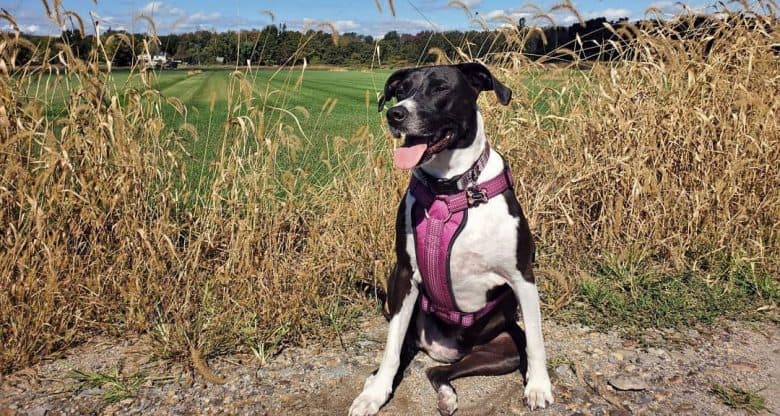
Do Lab Hound mix dogs shed?
The Lab Hound mix is a moderate shedder and brushing is a necessity once a day around five to six days a week.
When brushing your dog also be sure to clean out their ears and check for any pests that they may have picked up on their daily walk.
Also, trim this breed's nails regularly or they can get too long. Nail trimming once or twice each month should be sufficient.
How long do Lab Hound mixes live?

The life expectancy of the Lab Hound mix is around thirteen years, give or take a year or two.
The lifespan of your Lab Hound mix will be affected by diet and lifestyle but some common health conditions to be aware of include hip dysplasia, back issues, bloat, and glaucoma.
As the Labrador Retriever parent is also known to suffer from skin allergies and dry and itchy skin this may be something that also affects your Lab Hound mix.
Lab Hound mix puppies for sale
The exact look and personality of a Lab Hound mix puppy can be very difficult to predict.
This is not only due to the multitude of Hound breeds out there but also due to the fact that even within the same litter a variety of different-looking puppies is a possibility.
Lab Hound Mix Breeders
When looking for a Lab Hound mix puppy for sale be sure to search for a breeder that follows responsible, ethical breeding practices so that you can avoid accidentally buying your dog from a puppy mill.
Here are some sites where you can search for Lab Hound mix puppies for sale:
- Greenfield Puppies
- Lancaster Puppies
- Keystone Puppies
Lab mix puppies for adoption
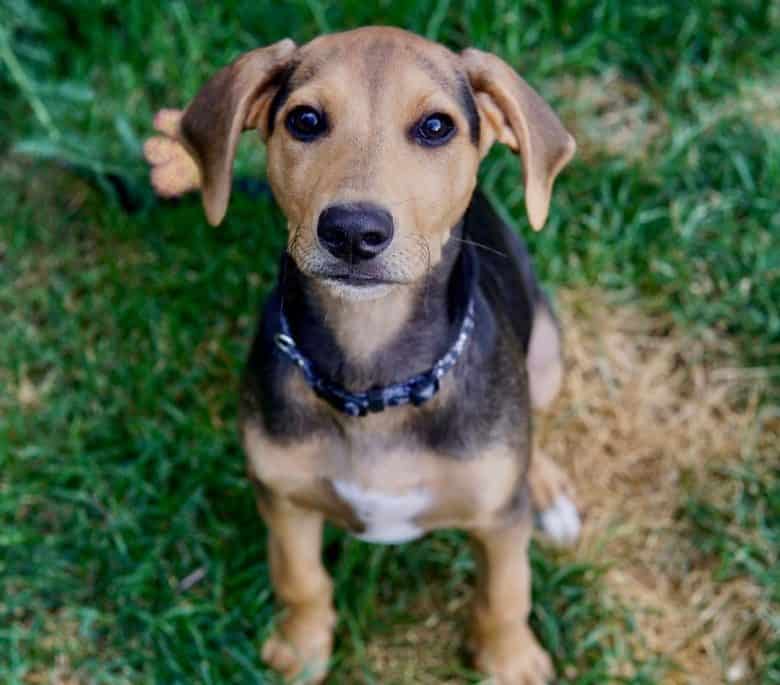
While a specific rescue or adoption organization specializing in Lab Hound mix dogs looking for a home may be near impossible to find, you can try searching at Labrador Retriever or Hound specific rescues as they often take in mixed dogs as well.
Alternatively, check out sporting dog rescue groups who often have Labrador Retriever or Hound mix breeds in need of a loving home. Here are a few options to get you going:
- Belly Rubs Basset Rescue
- Lucky Lab Rescue & Adoption
- Retrieve a Friend
Various types of Lab hound mixes
As we know, there are many distinct breeds of Hound dogs, all of which have different histories, specific characteristics, and unique personalities.
Breeding any one of these Hound dogs with a Labrador Retriever is going to result in a completely unique crossbreed.
Let's take a closer look at some of the most popular Lab Hound mix dogs out there:
Dachshund Lab Mix
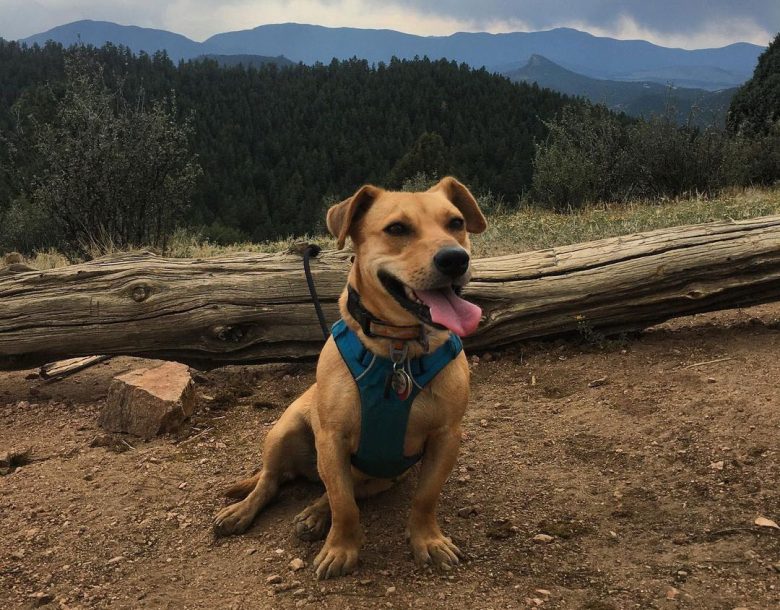
The Dachsador is a mix between a Labrador Retriever and a Dachshund. The Dachshund comes from Germany where these dogs were originally used to hunt games that dwelled underground.
Also known as sausage or wiener dogs, Dachshunds are known for their elongated bodies and lively natures. These small dogs have a good level of energy and can be quite vocal companion.
The size of the Dachshund parent will influence the height and weight of the Dachsador mix.
Standard Dachshunds weigh between 15 and 30 pounds (7 and 14 kg) and stand 8 to 9 inches (20 to 23 cm) tall while you can also find miniature varieties that weigh just 10 pounds (4.5 kg) or under and only reach 5 to 6 inches (13 to 15 cm) in height.
In addition to the two various sizes, Dachshunds can be grouped into three distinct categories based on their coat, be that a smooth, longhaired, or wirehaired dachshund.
Dachshunds typically live between 12 to 16 years old with back problems, epilepsy, and blindness all common in this breed.
Lab Coonhound mix
Coonhounds are part of the scent Hound group and these talks were originally bred to hunt tree-climbing game.
There are six varieties of Coonhound with some of the most popular being the English Coonhound, Treeing Walker Coonhound, and Plott Hound.
Known as North Carolina's state dog, the Plott Hound is often crossed with a Labrador Retriever to create a Lab Coonhound mix.
These strong dogs are capable of chasing down large animals and have a high level of endurance but they are also gentle giants, showing great love for their humans.
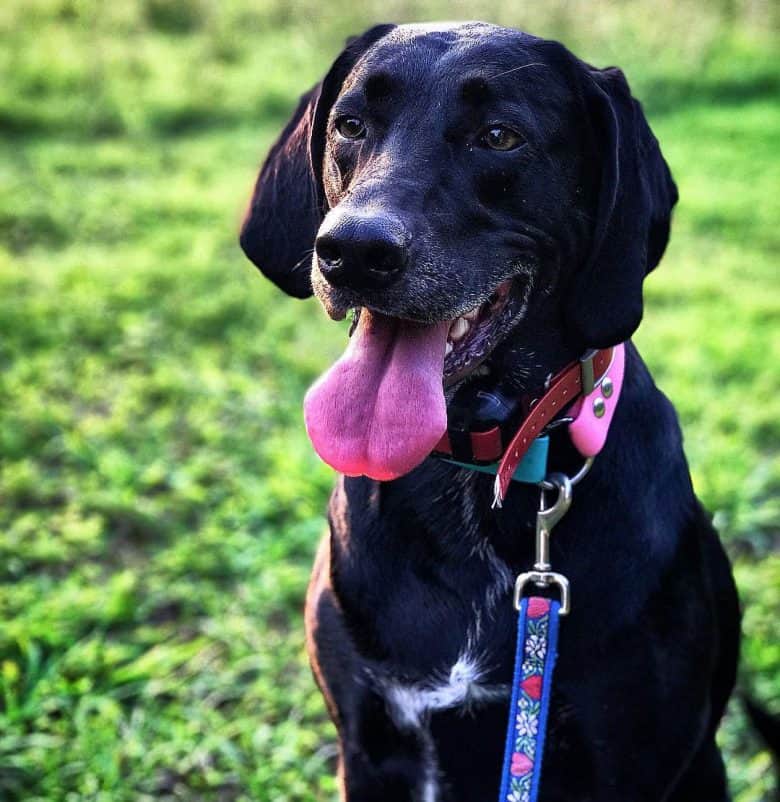
Due to their high energy, they need regular exercise and will love an active family home. They may also have a tendency to bark.
This dog will have a short, shiny coat that needs less maintenance than some other Lab Hound mix dogs but they will shed seasonally. The Lab Coonhound mix can come in black, tan, or brindle.
As a deep-chested breed, these dogs can be susceptible to bloat while other potential health concerns include eye disease and hip dysplasia.
Lab Basset Hound mix
Mix a Basset Hound with a Labrador Retriever and you will get a Bassador. These dogs are sociable and loving and make for excellent family pets.

The Bassador will have a solid, low slung body and adorable big, droopy ears. Their thick coat will protect them in any weather conditions but does tend to shed quite a bit, particularly between seasons.
You can find the Lab Basset Hound mix in a variety of colors and patterns including tri or bi-colored coats in tan, white, red, or black.
Like other Hound breeds and mixes, a Bassador will have a high prey drive and will always be sniffing around. Although this breed doesn't require as much exercise as some of the other Hound breeds.
The Bassador will typically live for around 10 to 12 years.
Bloodhound Lab Mix
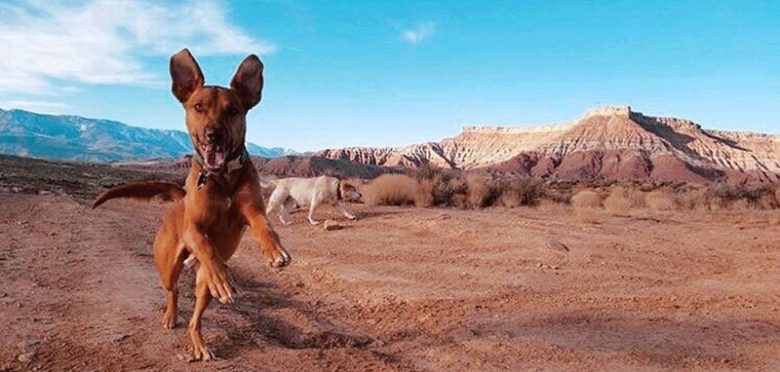
The Bloodhound Labrador mix, also known as the Labloodhound, will be a sturdy, heavy dog that can reach over 100 pounds and will stand around 30 inches tall.
Their big bodies feature long, floppy ears and wrinkly skin. These dogs can come in liver, tan, black, or red. Their coat will shed frequently and they need to be brushed daily.
This giant companion is a loveable dog with a personality that is very similar to the loveable Labrador.
Just like the Labrador Retriever, the Bloodhound Labrador mix is an easy to train mix, and due to this, coupled with their strong endurance levels, this breed is often used in search and rescue work.
Unfortunately, these dogs have a short lifespan of just nine years with a number of health concerns including hip and elbow dysplasia, eye disease, and heart problems.
Is a Lab Hound mix right for my family?
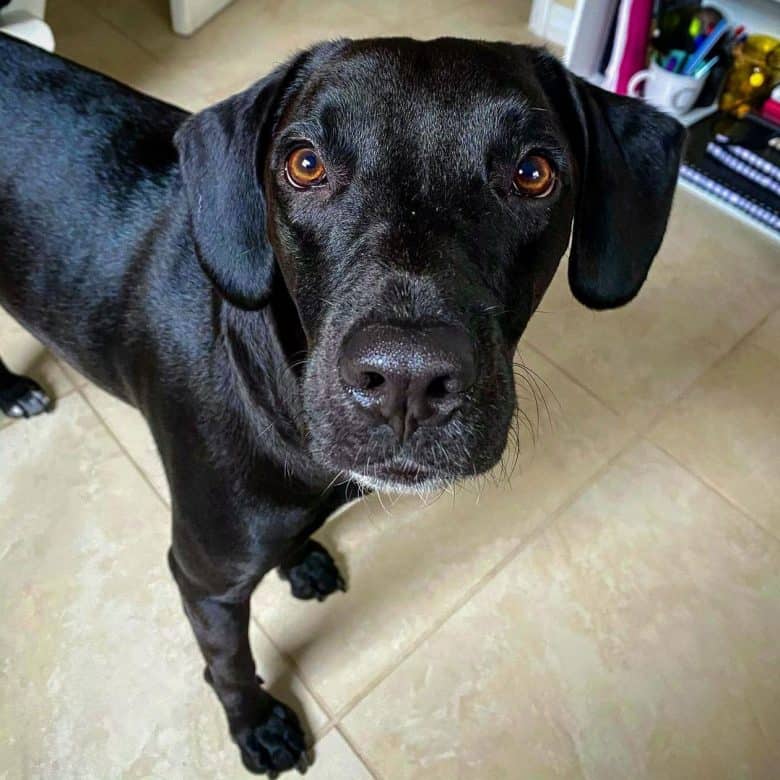
The Lab Hound mix may be a unique and unpredictable crossbreed but if you are looking for a one of a kind dog then this may be the perfect choice for you.
While it may be difficult to determine the exact appearance and temperament of the Lab Hound mix, the parent Hound breed will have a huge part to play in how your puppy turns out.
Source: https://www.k9web.com/breeds/lab-hound-mix/
0 Response to "How Much to Feed a Lab Hound Mix"
Post a Comment